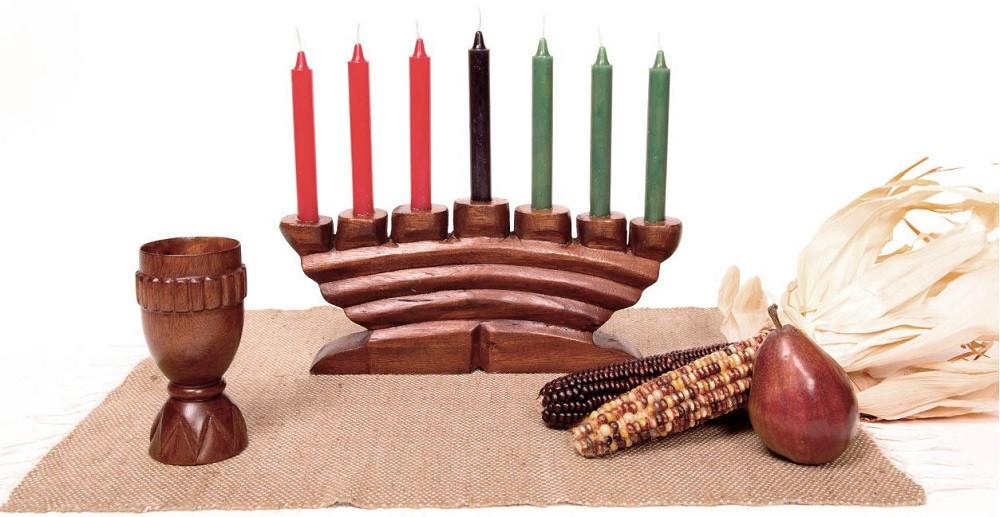Kwanzaa
Dec 26th 2019
Today is the first day of Kwanzaa! According to the Official Kwanzaa Website, Kwanzaa is an African American and “pan-African holiday which celebrates family, community and culture created by Dr. Maulana Karenga in 1966 and celebrated from December 26 - January 1.” Dr. Maulana Karenga was a professor of black studies at California State University. Kwanzaa is based on African festivals with the Swahili word meaning “the first fruits.” Unlike Hanukkah or Christmas, Kwanzaa is not a religious celebration, but a cultural one (Vindy).
Kwanzaa lasts for seven days and is organized around the Nguzo Saba (the Seven Principles). These principles are Umoja (Unity), Kujichagulia (Self-Determination), Ujima (Collective Work and Responsibility), Ujamaa (Cooperative Economics), Nia (Purpose), Kuumba (Creativity), and Imani (Faith). Feasts, music, dance, poetry, and reflection are central to the holiday (Official Kwanzaa Website). Today, the principle is Umojia, or Unity. On this day, the black candle in the center of the Kinara (candleholder), in the middle of the red and green candles, is lit, marking the commencement of the festive season. The candle lighter makes a statement about Umoja. A Umoja cup is filled with fruit juice and shared between all who are present. On every new day of Kwanzaa, another candle is lit and the lighter makes a statement about the daily principle, which can include poetry and ties to the lives of the people who are celebrating. The Umoja cup is shared once again, and after the ceremony, the candles are extinguished until the next day (Holiday Spot).
On the sixth day of Kwanzaa, which celebrates Kuumba (Creativity), there is feasting and gathering with family and friends. On the seventh and final day, all candles are lit (Holiday Spot). According to Vindy, the celebration fosters consideration of people’s African roots and lives in present-day America. Vindy describes Kwanzaa's seven principles as follows:
- Umoja (unity) — Joining together as a family, community and race.
- Kujichagulia (self-determination) — Responsibility for one’s own future.
- Ujima (collective work and responsibility) — Building the community together and solving any problems as a group.
- Ujamaa (cooperative economics) — The community building and profiting from its own businesses.
- Nia (purpose) –The goal of working together to build community and further the African culture.
- Kuumba (creativity) — Using new ideas to create a more beautiful and successful community.
- Imani (faith) — Honoring African ancestors, traditions and leaders and celebrating past triumphs over adversity.
According to Vindy, “Other symbols of Kwanzaa include the mkeka, a straw mat that represents the foundation of which everything else rests; mihindi, which are ears of corn which represent the children of the family; matunda is the fruit placed in a basket on a table to represent the harvest; zawadi are gifts, such as books, which are awarded to children for hard work; and the kikombe cha umoja is a cup of unity. Families drink from the cup on the sixth day of Kwanzaa.”
Of course, each family and friend group celebrates Kwanzaa in a different way, guided by the Seven Principles. We hope that whether or not you celebrate Kwanzaa, you are able to spend some time today reflecting on the theme of Umoja, or unity. We are wishing you light, community, and celebration this holiday season. Happy Kwanzaa!

References & Further Reading
http://www.officialkwanzaawebsite.org/index.shtml
https://www.theholidayspot.com/kwanzaa/sevendays.htm
https://www.vindy.com/news/community-news/2019/12/kwanzaa-celebration-kicks-off/

